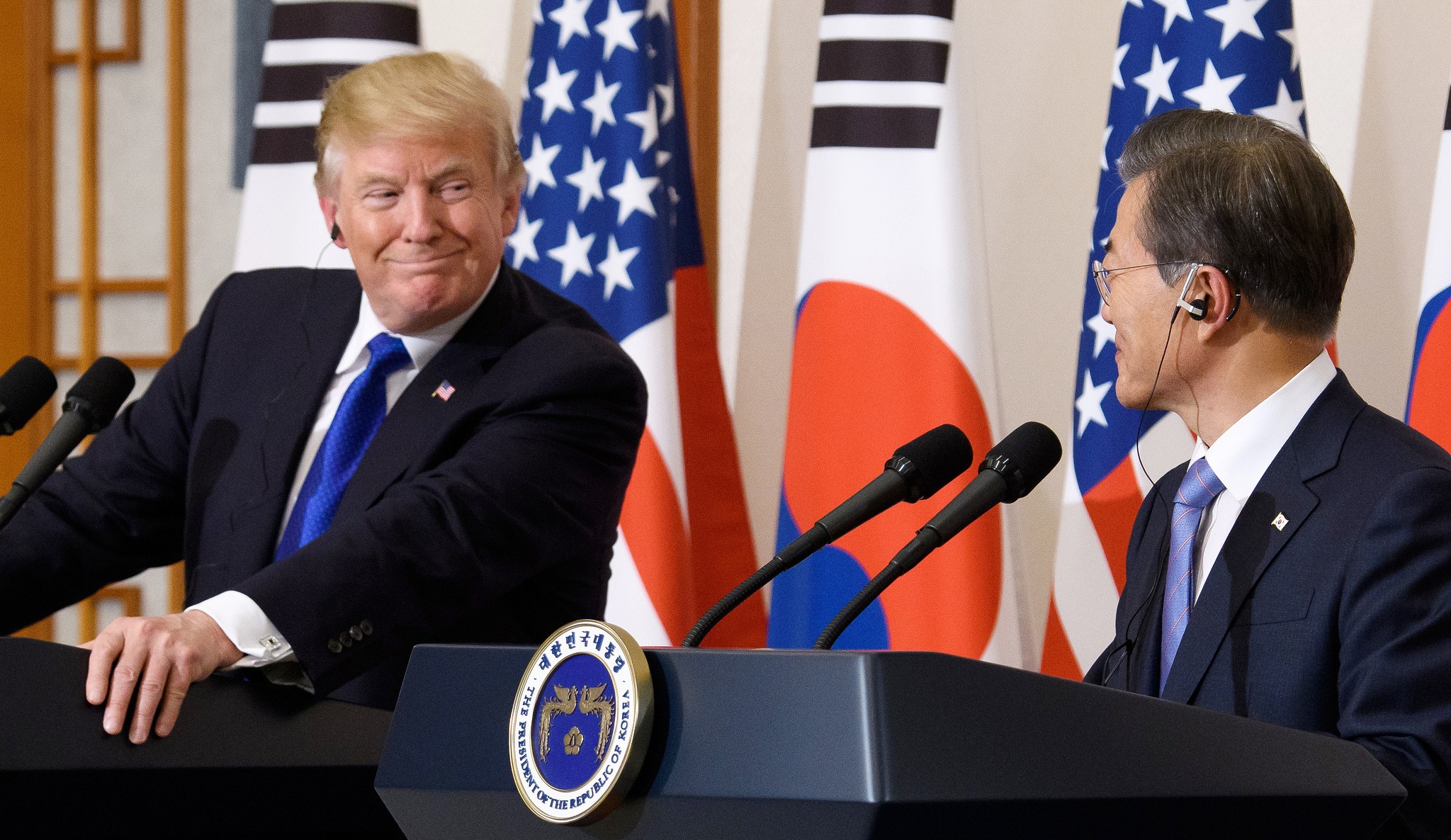
President Donald Trump is to meet Kim Jong-un, North Korea’s a dictator with unchecked powers, for talks within weeks. If the meeting, aimed at resolving one of the world’s most intractable standoffs, takes place, it would be the first ever between a sitting US president and a North Korean leader.
The Trump administration, which has made efforts to compel North Korea to give up its nuclear programme its top foreign policy priority since taking office, is pursuing a policy of “maximum pressure” against Pyongyang in a bid to coerce the reclusive regime to denuclearise.
The process of diplomacy has been spearheaded by South Korean president Moon Jae-in. He invited a North Korean delegation to participate in the Winter Olympic Games in Pyeongchang, which was used by South Korea as an opportunity to reopen long-frozen relations. A flurry of diplomatic activity at the Winter Olympics culminated in Mr Kim inviting Mr Moon to Pyongyang for a summit.
South Korean officials delivered the invitation for talks to the Oval Office on Thursday after meeting North Korea’s dictator earlier this week. Mr Trump’s acceptance of Mr Kim’s invitation to a summit meeting marks a diplomatic victory for Mr Moon.
China and Japan, the two regional powers, welcomed a summit between Mr Trump and Mr Kim. Shinzo Abe, the Japanese prime minister who has worked assiduously to cultivate a close relationship with Mr Trump, announced an unplanned trip to Washington next month to discuss the North Korean nuclear issue.
Pyongyang has rapidly accelerated its nuclear programme since Mr Kim came to power in 2011. Last year, the regime tested three long-range missiles and a nuclear device, saying it was a successful hydrogen bomb test. Mr Kim also threatened to detonate a nuclear bomb over the Pacific. Tensions on the peninsula looked set to tip over into conflict as the US and North Korean leaders exchanged angry insults. Mr Trump derided Mr Kim as “short and fat” and “little rocket man”. Mr Kim called Mr Trump “the mentally deranged US dotard”.
The regime declared last year the completion of North Korea’s state nuclear force, claiming the capability of striking the US mainland with a nuclear-tipped missile. Mr Trump vowed that would never happen and threatened “fire and fury like the world has never seen” in response to any nuclear provocations. In a New Year’s Day speech, Mr Kim said he had “a nuclear button on the desk” that could launch missiles capable of hitting the US. Mr. Trump responded that he had a much bigger and more powerful button than Mr Kim’s. North Korea is believed to have about 60 nuclear warheads.
Wide-ranging UN and bilateral US sanctions have squeezed North Korea’s access to revenues. The White House has said that the Trump-Kim meeting is not a concession to North Korea, and it doesn’t signal a change in policy.
Mr Kim now appears willing to engage with the world after years of isolation as he is seeking international recognition and the transformation of North Korea from a rogue pariah into an established nuclear power. But he also believes that it is his nukes that have persuaded Mr Trump to meet him.
Mr Kim would suspend nuclear and missile testing while the talks were under way and not object to annual large-scale joint military exercises between US and South Korean forces (Washington agreed to postpone military exercises with South Korea during the Olympics, but they are scheduled to resume in April). History, however, shows that North Korea has a poor record of upholding nuclear pledges as the regime sees its nuclear weapons as its best protection.
In 1994 the Kim regime agreed to freeze its plutonium weapons programme in exchange for aid. The deal collapsed in 2002. In 2005 North Korea committed to denuclearisation. It tested its first nuclear device in 2006. It is likely, therefore, that Pyongyang will use the lull in tensions to continue to develop its nuclear weapon and missile programmes in secret or push for concessions on UN sanctions. Mr Kim may also propose that US troops should withdraw from the Korean peninsula in return for denuclearisation.
Photo: The government of the Republic of Korea.